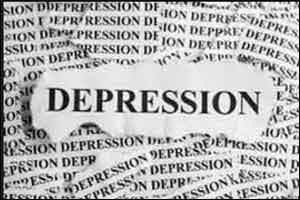- Home
- Editorial
- News
- Practice Guidelines
- Anesthesiology Guidelines
- Cancer Guidelines
- Cardiac Sciences Guidelines
- Critical Care Guidelines
- Dentistry Guidelines
- Dermatology Guidelines
- Diabetes and Endo Guidelines
- Diagnostics Guidelines
- ENT Guidelines
- Featured Practice Guidelines
- Gastroenterology Guidelines
- Geriatrics Guidelines
- Medicine Guidelines
- Nephrology Guidelines
- Neurosciences Guidelines
- Obs and Gynae Guidelines
- Ophthalmology Guidelines
- Orthopaedics Guidelines
- Paediatrics Guidelines
- Psychiatry Guidelines
- Pulmonology Guidelines
- Radiology Guidelines
- Surgery Guidelines
- Urology Guidelines
PET tracer to predict treatment outcomese in depression

Major depressive disorder (MDD) is a debilitating condition that affects more than 14 million Americans. There is no marker is currently available in clinical psychiatry to predict whether specific treatment is likely to be effective in MDD. The scientists have found a positron emission tomography (PET) imaging that may act as a pretreatment indicator to help clinicians determine which specific treatment is likely to be effective for the Major depressive disorder.The study features in the April issue of The Journal of Nuclear Medicine.
The PET tracer 11C-DASB targets the serotonin transporter protein (5-HTT) in the amygdala of the brain, which is important for emotional processing. The drug escitalopram, a selective serotonin reuptake inhibitor (SSRI), can be an effective MDD treatment, but not for all patients. A PET scan with 11C-DASB can indicate which patients will benefit by measuring the level of the 5-HTT present before treatment.
"MDD is a heterogeneous disorder, which makes it extremely difficult to treat effectively," explains Mala R. Ananth of Stony Brook University in Stony Brook, New York. "Optimizing treatment is challenging and is performed by trial and error, which could result in weeks of ineffective treatment, placing a burden on patients. As such, a pretreatment indicator that helps clinicians determine whether treatment will be successful is desperately needed."
Ananth points out the study's significance, saying, "Our study begins to address this by using PET to examine the neurobiology of patients with MDD prior to eight weeks of escitalopram (SSRI) treatment. Using PET, we quantified the protein target of SSRIs, the serotonin transporter 5-HTT. Our results indicate that patients who found relief following escitalopram treatment had less 5-HTT protein before treatment began. This is exciting because it suggests that pretreatment neurobiology can be used to predict response to treatment, potentially preventing ineffective treatment trials."
For the study, 31 healthy individuals (controls) and 26 medication-free patients with MDD received a PET scan using 11C-DASB. MDD subjects then received eight weeks of standardized therapy with escitalopram. The researchers found a significant difference in amygdala binding, with medication-free patients showing an 11percent lower amygdala binding than controls. These results suggest 5-HTT amygdala binding should be examined further, in conjunction with other measures, as a potential biomarker for remission following standardized escitalopram treatment.
Ananth remarks, "Pretreatment markers of effectiveness are needed to reduce the burden of ineffective treatment trials for patients. Psychiatry currently has no objective markers to determine whether a treatment will be effective. PET imaging can fill that gap, and can be used to quantify biological features that indicate a successful course of treatment. Further, these features shed light on the neurobiology of MDD needed to develop novel and more targeted therapeutics."

Disclaimer: This site is primarily intended for healthcare professionals. Any content/information on this website does not replace the advice of medical and/or health professionals and should not be construed as medical/diagnostic advice/endorsement or prescription. Use of this site is subject to our terms of use, privacy policy, advertisement policy. © 2020 Minerva Medical Treatment Pvt Ltd